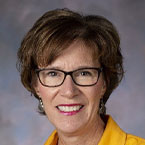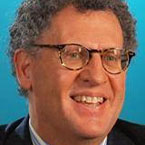By: Beth Vogt, MD, FAAP & Craig Langman, MD, FAAP
Dialysis is a medical treatment that does some of the jobs that the kidneys usually do. Children whose own kidneys work poorly (usually less than 10% of normal) need dialysis.
While dialysis treatments do just a small part of the work that healthy kidneys do, they provide just enough to keep a child with kidney failure from getting very sick.
What does dialysis do?
Dialysis helps keep a child's body in balance by:
Does dialysis help the kidneys work better?
No, unfortunately dialysis does not improve the health of a child's kidneys. Instead, it takes over some of the things the kidneys do.
What is the difference between peritoneal dialysis and hemodialysis?
There are two different types of dialysis – peritoneal dialysis (PD) and hemodialysis (HD). PD is done using a soft tube in the abdomen (belly) that connects to a dialysis machine. HD is done by pulling the child's blood from either a catheter or an access in the arm and sending it in a loop through the dialysis machine.
PD is done at home and HD can be done at a dialysis center or in the home.
How do I decide what is the right type of dialysis for my child?
This is a big decision that depends on a lot of factors – your child's age, medical condition and your family's preference. Dialysis teams understand the pros and cons of PD and HD very well and can help you make the best decision for your child. We encourage parents and children to discuss both types of dialysis before making a decision.
Who takes care of a child on dialysis?
The head of the team is the
nephrologist (kidney doctor). Dialysis nurses and technicians provide the treatments. Dialysis nurses teach and support the family of children on PD and home HD.
Other important people on the dialysis team include the dietitian, the social worker and many others including a psychologist, child life specialist and teacher. And of course, the child and the parents and caregivers are the most important part of the team.
Do children on dialysis need a special diet?
Most children on dialysis have dietary (food) restrictions, but these are different for each child.
Common restrictions include avoiding foods high in sodium (salt), potassium, and phosphorus. Many children on dialysis must limit their daily intake of fluids to help them not gain too much weight from excess water that builds up in the body between dialysis treatments.
Restrictions on food and fluid are common in children treated with HD, but also are important for those on PD. Some children on dialysis may also need nutritional supplements such as extra protein and vitamins to help them grow and stay healthy.
Can children on dialysis go to school?
Yes! Children on PD can go to school regularly since PD treatments are done at night while they are sleeping. Children on HD can also attend school, but will commonly have shortened school days when they must go to the dialysis center for treatment. Children can do schoolwork during treatments and may get help from a dialysis unit teacher or a tutor.
Many children on dialysis qualify for an IEP (individualized education program) to help make their school experience the best it can be.
Is dialysis forever?
Children with kidney failure can live for a long time with the support of dialysis treatments. But treatment with dialysis is usually not the long-term goal since dialysis only replaces a small part of what normal kidneys do. In addition, it takes a lot of time and effort from the child and family.
The plan for most children is to use dialysis as a "bridge" to a kidney transplant. Children usually feel much better, have more energy and appetite and can enjoy a more normal lifestyle following successful kidney transplantation.
More information
About Dr. Vogt
 Beth Vogt, MD, FAAP, is a nephrologist at Nationwide Children’s Hospital and an Associate Professor of Pediatrics at The Ohio State University College of Medicine. Within the American Academy of Pediatrics, she is a member of the Section on Nephrology. Beth Vogt, MD, FAAP, is a nephrologist at Nationwide Children’s Hospital and an Associate Professor of Pediatrics at The Ohio State University College of Medicine. Within the American Academy of Pediatrics, she is a member of the Section on Nephrology.
|
About Dr. Langman
 Craig B Langman MD, FAAP, Dr. Craig Langman served as the first Issac A. Abt, MD Professor of Kidney Diseases and a tenured Professor of Pediatrics at Northwestern University Feinberg School of Medicine. He was the Division Chief of pediatric kidney diseases at the Ann and Robert H. Lurie Children’s Hospital for 30 years until recently, when he retired as an emeritus professor of pediatrics. His interests included dialysis and transplantation in children as well as genetic diseases of the kidney and bones. With others he created Pediatric Davita, which is the major provider of pediatric dialysis in the United States for children. He received funding from the NIH for the study of pediatric hypertension as well as other bones diseases related to child abuse. Craig B Langman MD, FAAP, Dr. Craig Langman served as the first Issac A. Abt, MD Professor of Kidney Diseases and a tenured Professor of Pediatrics at Northwestern University Feinberg School of Medicine. He was the Division Chief of pediatric kidney diseases at the Ann and Robert H. Lurie Children’s Hospital for 30 years until recently, when he retired as an emeritus professor of pediatrics. His interests included dialysis and transplantation in children as well as genetic diseases of the kidney and bones. With others he created Pediatric Davita, which is the major provider of pediatric dialysis in the United States for children. He received funding from the NIH for the study of pediatric hypertension as well as other bones diseases related to child abuse.
|